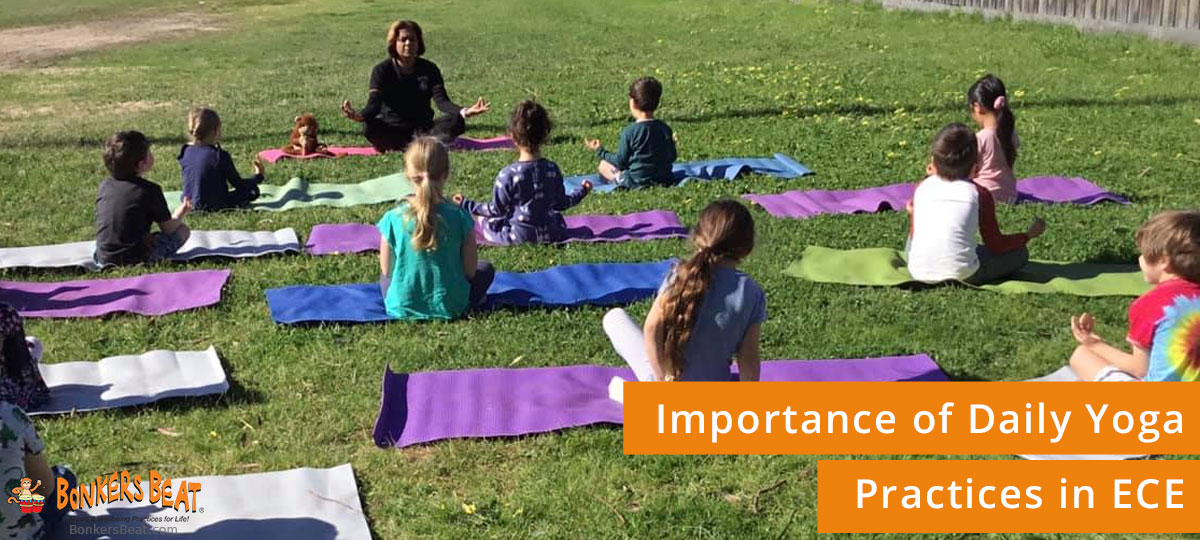Did you know that yoga is thousands of years old? Its origins can be traced back over 5,000 years, with reference made to the practice on ancient stone tablets. Yoga involves both the body and the mind, combining physical movements and postures with breathing techniques, meditation and mindfulness.
The combination of movement, stretching and breathing is intended to improve health as well as happiness — and studies suggest that it.
Yoga is a special part of the Bonkers Beat approach to early childhood education — in fact, we do yoga with children every day. The beauty of doing yoga daily is that it becomes part of our lives, so we can maximise the benefits for physical and mental health and wellbeing. When something like yoga becomes part of your daily kinder routine it also makes it easier to incorporate it into your life. Rather than questioning when you might fit it in, it’s just a given that you will do your yoga practice. Plus, it makes you feel so great that you really want to do it anyway!
There are many reasons why we choose to do and promote daily yoga with children in early childhood education settings. Here are a few of the key reasons it’s something we prioritise for children (and adults too!):
Better emotional awareness and control: Deep breathing is an excellent tool to help calm children down when they aren’t able to control their behaviour in an outburst or ‘tantrum’ scenario. Teaching children to use this technique when required can lead to more awareness and control over their emotions.
Improve memory and concentration: Said to be attributed to a combination of deep breathing and the learned ability to focus, yoga and meditation has benefits like improved concentration and memory.
Learn to appreciate quiet and stillness: Yoga and meditation in early childhood can be a path to feeling comfortable in silent moments, and being present when we are still. This helps us to listen with attention and make clear decisions in our lives.
Better sleep: Most exercises have an impact and yoga is certainly no exception – regular practice can lead to better sleep, and deep breathing or meditation can be useful tools to help children fall asleep more easily too.
A self-esteem boost: Accomplishing a new move in yoga or improving your balance, can go a long way to show children what they are capable of and boost their self-esteem.
More flexibility and strength: Regular yoga and meditation can enable us and children to move more freely and become strong and flexible.
Improved overall health: Cardiovascular health, digestive health, the nervous system, regulated hormone levels, improved immunity, better sleep — the list of health benefits of yoga goes on and on!
Connect with themselves and one another: Yoga and meditation in early childhood settings can be a fun way to get more comfortable and connect with ourselves and others.
Fitting yoga into the day
As little as 5 minutes of yoga can make a difference. At Bonkers Beat Music Kinder we start every day with a ‘Welcome a New Day’ session which includes yoga, meditation and mindfulness exercises for around 20-25 minutes.
You can also use yoga or meditation to aid transitions in centres, such as heading indoors after playtime or preparing for rest. To help you get started, try out our yoga cards and other yoga and music resources — they are available here.
The Bonkers Beat programs incorporate daily yoga and meditation that children and adults absolutely LOVE. To learn more about our programs and the wellbeing initiatives within them, take a look here.





